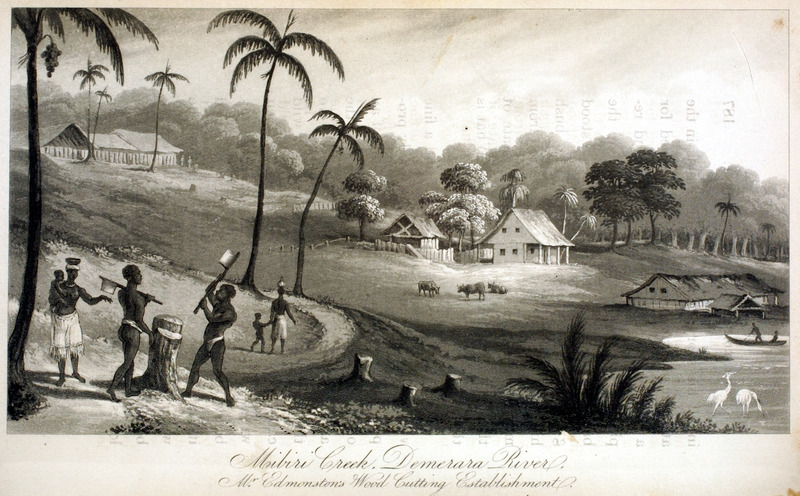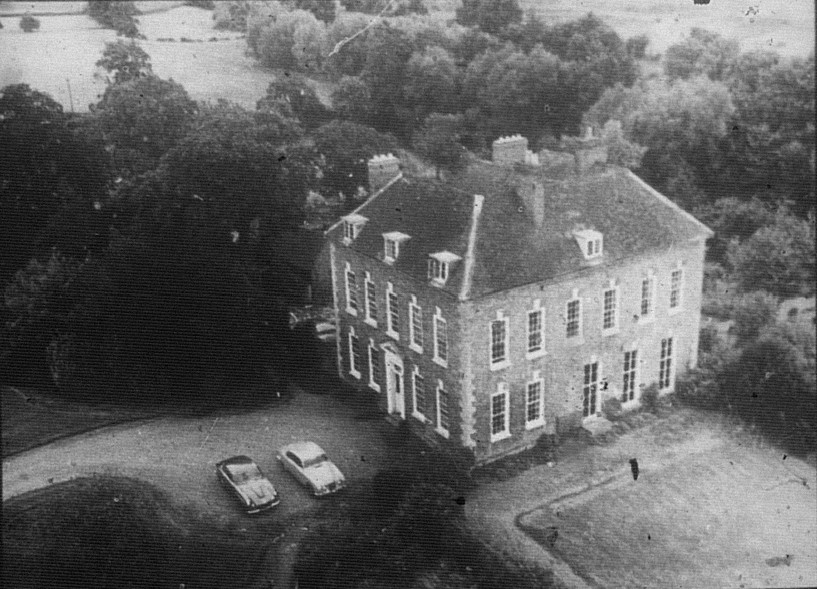Local Slave Trade Links in Upton-upon-Severn
- 30th September 2022
This October for Black History Month we thought we’d take a look at local slave trading connections, in Upton and Ripple.
Research by University College London allows us to investigate those who were awarded compensation for the ownership of slaves in 1837 after the slave trade was abolished. In total, slave owners were paid £20 million for enslaved people freed in the colonies and several of those were from Worcestershire. It is worth noting thought that none of those enslaved received compensation.
We thought it would be interesting to look at people in the Upton area where we find three different examples of slave ownership. Charles Henry Strode had part shares in a plantation in Antigua, and George Warren born in Ripple became a resident planter in Demerara before retiring to the UK, while Ellen Frances Wright, born in Jamaica, moved to the area when she married the Rector of Ripple.

Timber Estate, British Guiana (Demerara), 1834. Source: Thomas Staunton St. Clair, A Residence in the West Indies and America (London, 1834), vol. 2, facing p. 187.
Charles Henry Strode who had three addresses, including Newbridge Green, Upton-upon-Severn was awarded money as a slave owner. His claim was linked to a plantation in Antigua known as Vernon’s. On 13th Nov 1837 when he was awarded the compensation there were 329 Enslaved individuals at the plantation. The whole sum awarded for this plantation was £4906 5s 5d, but this was split between 6 individuals; himself, James Cranbourne Strode, Rev. John Kirby, Rev. Henry Kirby, William Augustus Johnson, and John Vernon ‘of Boulogne’. Strode received the smallest portion at just £726 5s 0d.
Captain George Warren of Ripple (according to the 1851 census) was awarded compensation for slaves owned at British Guiana at an estate known as Taymouth Manor and Farm. He was awarded £18344 9s 6d for 351 enslaved people. George had been born at Ripple becoming a Lieutenant Colonel in Her Majesty’s Service, commanding the 2nd Bengal Europe Regiment. On retirement he had become a resident planter in the 1830s, in Demerara. By 1841, aged 45, he was living on his own means at Chester Square, London, with his second wife Maria Warren, and two grown up daughters Cleopatra Warren and Georgiana Warren – all born in Demerara and all aged 20. He had moved to Kensington by 1851 with his second wife and their daughters Maria, Harriet J. S., Mary (they would have a fourth daughter too) and son George and 5 female servants. His probate in 1857 showed that she still owned a house in George Town and property in Kingston which he left to Georgiana (his daughter from a previous marriage). Though the census shows him to be born in Ripple he may have been baptised elsewhere if his family moved before his baptism as we cannot find it in Ripple.

WPS 30338 Ripple Rectory from Church Tower – acknowledgements to Rector of Ripple 1964
Arriving in Ripple later in her life, Ellen or Helen Frances Wright, later Clifton, claimed £3910 9s 10d for 198 Enslaved people at Enfield estate in Manchester, Jamaica. Born in Jamaica in 1821, Ellen was the daughter of William Burt Wright II also born there. She was only a minor in the 1830s when she inherited the estate from her father. She married the Rev George Hill Clifton in 1842 at Paddington, who was the Rector of Ripple and Queenhill. Ellen was living at Ripple Rectory Worcestershire with her husband George Clifton Hill in the 1861 and 1871 censuses where he had been rector since 1838, and would continue until 1880. They later moved to Cheltenham, then Weston-super-Mare.
It was interesting to see how differently local people could have been involved in the slave trade, either as absent owners of shares, often through inheritance, or from working on plantations themselves, or being born into families already living in the colonies. Certainly these are good examples of the range of slave owners who benefitted from the compensation act, and highlight how widespread slave ownership could be.
Great post! Really interesting to see local connections to this.